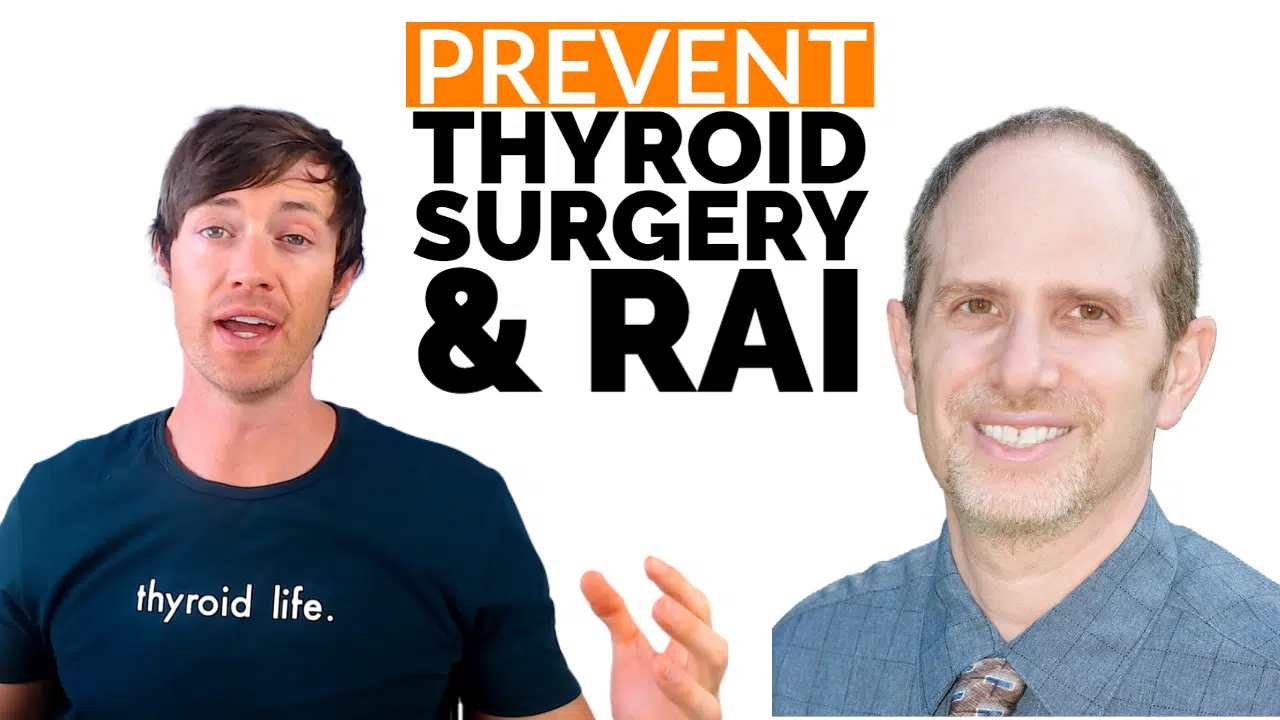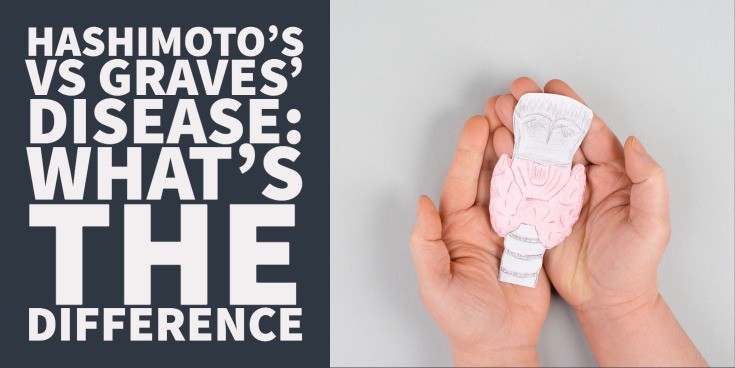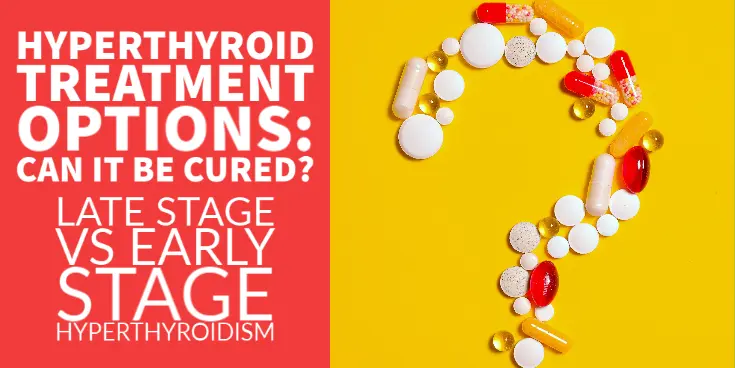Methimazole: What You Need To Know
Are you taking methimazole for hyperthyroidism?
If so, there are some things you should know about this medication.
For starters, how about the fact that it can have some serious consequences on your liver?
Or how about the fact that it can directly lead to weight gain?
These are just some of the potential side effects of methimazole.
In this article, you will learn…
- How methimazole works to blunt thyroid function
- How this negatively impacts thyroid function and may lead to low thyroid symptoms
- The side effects of lowering your thyroid and what that means for you
- The mild short-term side effects associated with methimazole
- The long-term more serious side effects associated with methimazole
- And what other therapies you should do while taking methimazole
Let’s jump in:
Methimazole Helps Slow Down Thyroid Function
As someone with hyperthyroidism, you probably already have some idea of how methimazole works.
Methimazole is what is known as an anti-thyroid medication.
Its entire goal is to SLOW down thyroid function and to take you from the hyperthyroid state to the “normal” thyroid state.
We call the normal thyroid state euthyroidism but you don’t necessarily have to know that for the purposes of this article.
But what you should know is that it’s incredibly difficult for your doctor to take you from the hyperthyroid state to the normal thyroid state with methimazole.
Instead, most hyperthyroid patients who take methimazole end up in a LOW thyroid state (known as hypothyroidism).
The reason is simple:
It’s actually quite difficult to balance your hormones, especially your thyroid, with the use of a medication that you take by mouth once per day.
Methimazole is like a blunt object when you really need a sharp scalpel.
Despite this, doctors still use and recommend methimazole because it’s often thought that the low thyroid state (hypothyroidism) is safer than the high thyroid state (hyperthyroidism).
Because of this, methimazole is often the drug of choice to treat pretty much any hyperthyroid condition (1).
And there are a lot of people taking it.
If you are one of them, you need to be aware of the potential side effects and consequences of this medication…
Side Effects + What To Look Out For
The side effects associated with methimazole are not as clear-cut as you might think.
Because methimazole BLOCKS thyroid function you can expect it to have consequences that impact your thyroid.
These consequences are in addition to any symptoms you may experience directly from the medication itself.
Below I’ve split up the types of symptoms you may experience from methimazole into 3 different groups.
The first group is symptoms you may experience from slowing down your thyroid.
The second group is mild symptoms you may experience secondary to the medication.
And the third group is more serious symptoms you may experience if you use methimazole long-term.
#1. Methimazole May cause Low Thyroid Symptoms
Remember:
The whole purpose of using methimazole is to slow down your thyroid to take you out of the hyperthyroid state.
The problem here is that slowing down thyroid function isn’t a perfect science so it’s easy to slow down thyroid function too much.
If you slow down thyroid function too much you may swing from a hyperthyroid state to a hypothyroid state and experience any of these symptoms:
- Weight gain
- Hair loss
- Fatigue
- Cold intolerance
- Constipation
- Muscle or joint pain
- Brittle nails
- Menstrual irregularities
- Depression
These are all symptoms of having a LOW thyroid.
It may seem weird that someone with hyperthyroidism can experience hypothyroid symptoms but believe me when I tell you that it happens all of the time.
Do not confuse THESE side effects/symptoms with the side effects of the medication itself.
They come from two very different reasons.
#2. Mild Side Effects Directly from Methimazole
Like any prescription medication, methimazole can also directly cause side effects.
These side effects are separate from the symptoms you may feel as you slow down your thyroid.
Side effects of taking Methimazole may include any or all of the following:
- Upset stomach
- Nausea/vomiting
- Rashes or itching of the skin
- Headaches
- Drowsiness
- Dizziness
- Muscle or joint pain
- Swelling
- Hair loss
These side effects tend to be on the more mild side and are often related to your dose.
If you are experiencing any of these side effects then you can talk to your doctor about making changes to your dose.
#3. More Serious Side Effects from Methimazole
What you may not realize is that methimazole is NOT intended to be used long-term.
In fact, there are some serious side effects that may come about if you try to use methimazole long-term.
These side effects come from organ damage.
More serious side effects may include:
- Liver damage
- Yellow eyes or skin
- Severe abdominal pain/stomach pain
- Very dark-colored urine
- Nausea/vomiting that doesn’t stop
- Reduced urinary output (not urinating as much as you used to)
If you experience ANY of the side effects then you need to talk to your doctor immediately.
Methimazole & Weight Gain Explained
Another side effect that patients often experience when starting methimazole is weight gain.
How can you gain weight if you are hyperthyroid?
Shouldn’t hyperthyroid patients LOSE weight?
Well, yes, but also no.
Your thyroid is one of the main things in charge of maintaining your weight.
If your thyroid is in overdrive then your metabolism will be increased and you will lose weight (a side effect of hyperthyroidism).
Conversely, if your thyroid is slowed down then your metabolism will be decreased and you will GAIN weight (a side effect of hypothyroidism).
You can probably already see where I am going with this.
What does methimazole do to your thyroid?
It SLOWS it down.
And if you slow down your thyroid then you will necessarily slow down your metabolism in the process.
So it is VERY possible that you can have hyperthyroidism but be treated with methimazole AND gain weight.

In fact, it’s actually quite common.
The mechanism isn’t that complicated either, it has everything to do with your thyroid.
Unfortunately, it can be very difficult to try and lose weight while you are taking methimazole.
Why?
Because you are fighting against a medication that is limiting your ability to succeed.
It’s like trying to run a race with a crutch.
It’s not impossible to lose weight while taking methimazole but it is very difficult.
If you are trying to lose weight then your best bet is to try and get off of methimazole.
Methimazole Shouldn’t Be Used Long-Term
If you are taking methimazole then you should be aware that this medication is NOT intended to be used long-term.
The usual recommended duration of therapy is somewhere around 18 to 24 months.
And the reason is simple:
As much as one-half of patients with hyperthyroidism will experience a relapse in their condition and no longer need it.
In this way, methimazole is really just used as a way to blunt the serious side effects of hyperthyroidism while giving your body time to fix whatever caused the hyperthyroid state to begin with.
Recently, some doctors have been recommending that hyperthyroid patients take methimazole for a longer duration of time (2).
This strategy requires a much smaller dose of methimazole but patients may have to take it for 60 to 120 months (3) (5 to 10 years).
I’m not a fan of this approach and I will provide some reasons why it may not be the best option below.
While methimazole is definitely effective at stopping the hyperthyroid state and reducing the symptoms associated with hyperthyroidism, long-term methimazole use may cause some serious consequences.
It turns out that your body needs thyroid hormone (surprise, surprise) and that reducing it below normal levels can have consequences on many organ systems in your body.
Long-term methimazole use may result in potential liver damage (4), changes to your bone structure (5), and more.
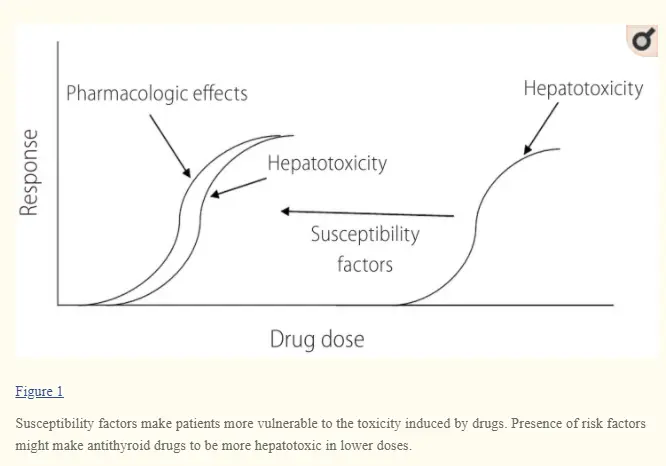
It’s not a good idea to use methimazole unless absolutely necessary which brings me to my next point.
What Else Can you Do?
If you aren’t a fan of the potential side effects associated with methimazole use then what are you supposed to do?
Fortunately, there are a number of lifestyle changes that you can make which may have a positive impact on your thyroid.
But let’s go back to the goal of methimazole for a minute to help you understand.
To do this we need to talk about why doctors recommend methimazole.
The entire goal when using methimazole is to slow down your thyroid function and allow enough time to pass for your body to heal.
Using this strategy anywhere from 15 to 50% of patients may experience a relapse in their hyperthyroid symptoms and no longer need any therapy to treat their hyperthyroidism.
Sounds pretty good, right?
It does.
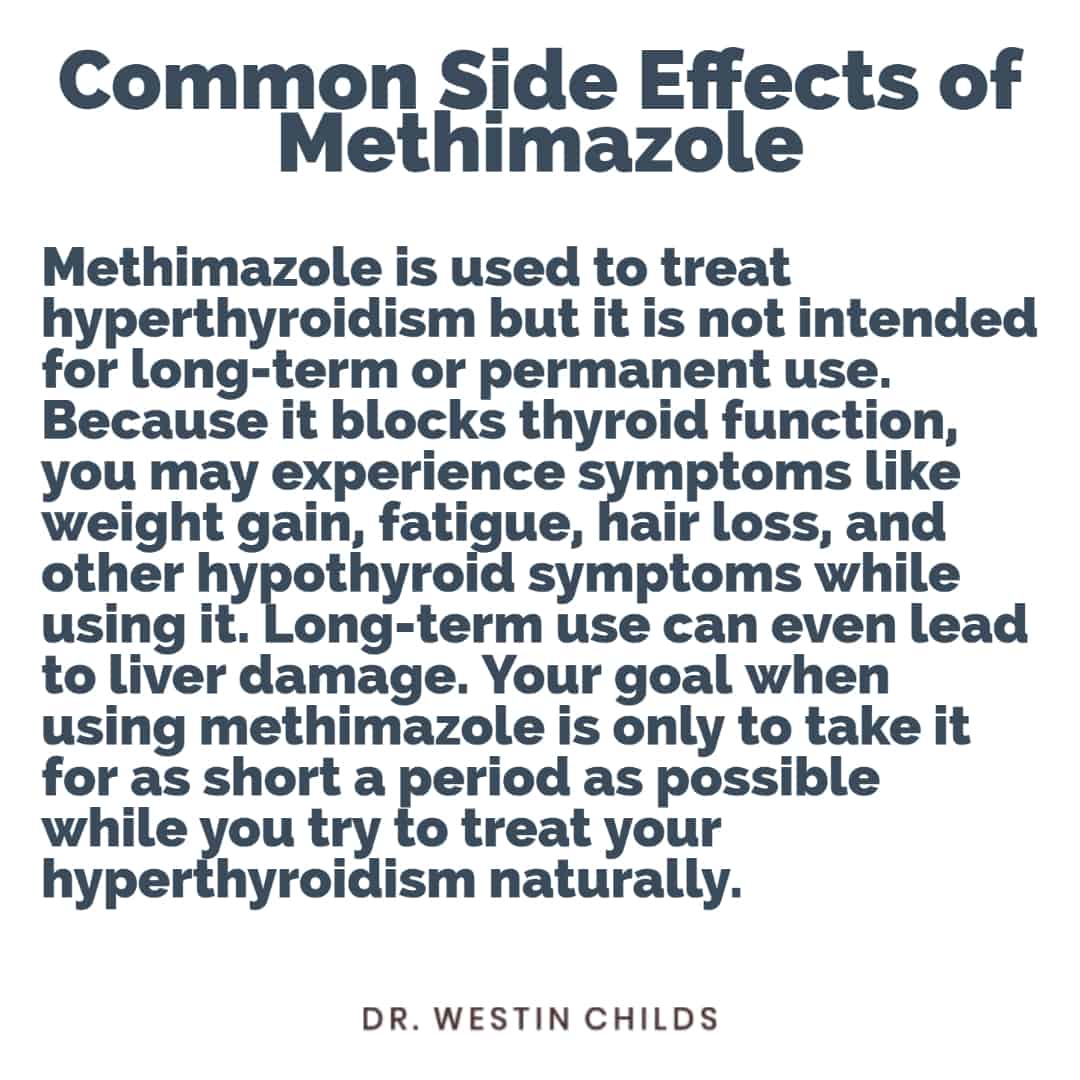
But what if there was a way to increase the chance that your body goes into remission so that you do not need to take methimazole for anywhere from 2 to 10 years (depending on which approach you use)?
That’s where natural therapies come in.
Making changes to your diet, taking dietary supplements, managing your stress, ensuring that you get enough sleep, and so on, may increase your odds of going into remission.
They also may allow you to get off of methimazole sooner rather than later (which would be ideal for most people).
And these natural therapies are incredibly safe and they are things that you are able to do on your own.
You don’t need permission from your doctor to eat more fruits and vegetables, avoid grains such as gluten, and make sure you sleep 8 hours per day.
These types of therapies are often overlooked by conventional doctors even though they are highly effective.
There are many therapies you can use depending on the type of hyperthyroidism that you have (Graves’ disease versus other conditions).
Final Thoughts
Methimazole is an anti-thyroid drug that is designed specifically to slow down thyroid function.
While it is great at managing the symptoms of hyperthyroidism (and consequences of this disease) it is not without side effects itself.
Side effects from methimazole tend to come from its effects on thyroid function or directly from the medication itself.
While methimazole can be effective it is not intended to be used long-term.
Even while taking methimazole you can take advantage of natural therapies such as improving your diet, avoiding gluten, reducing your stress, and taking supplements to help put your hyperthyroidism into remission.
These therapies are very safe and can be very effective.
Now I want to hear from you:
Are you currently taking methimazole?
If so, what type of side effects are you experiencing?
Do you think your side effects are coming from reducing thyroid function or directly from methimazole?
Have you tried using any natural therapies with methimazole? If so, which ones?
Leave your questions or comments below!


